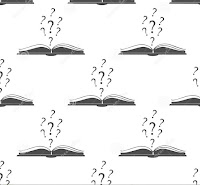Now that I am reading more again (although still nowhere near pre December 2017 levels) I am taking on more reading projects and finding that I can manage them in the time scales which is really heartening. I am generally also more willing to give up on books that don't hook me, rather than wasting my time and concentration on them.
This is all well and good but as a new project is just started and many of the library books I've reserved have also come in recently I am feeling a little pressured. Of course this isn't stopping me requesting books (from Netgalley & the library) or from buying more so I am my own worst enemy sometimes. I am watching a lot less television on my days off so that is probably a good thing! Hopefully I will sort the book balance out before too long, but realistically speaking this is only going to happen if publishing takes a 10 year break!
This week however I feel a little bit like I have wasted my precious reading time and concentration as I read (probably my first and definitely my last) Danielle Steel book - Beauchamp Hall.
While I do love a good chicklit book on occasion this one only crossed my radar because I read an article/early sales pitch stating that the book was set in Norfolk, but that the author had never visited the area. With this in mind I started reading this looking for errors.
On the plus side apart from building a stately home/castle in an area of the county where one doesn't exist there were no glaring geographical errors and Steel didn't try to recreate any Norfolk dialect.
That is pretty much all I have to say that is positive about this book!
I found the writing style dreadful and repetitive and I spotted every plot development coming all the way through - not something I often do with 100% accuracy, there is usually at least one surprise or twist that makes the read more enjoyable. As for the sex scenes
Even the trope of a 'superfan' coming to the location of their favourite TV show wasn't explored in anyway that is different and I'm pretty sure labour laws in the film/TV industry are a little stricter than implied here.
This book was like an identikit book you see advertised for children, you supply the name and a few details and the child is dropped into the plot - each book is the same but very slightly different and feels personal. The same was the case here - all that needed to be changed was the county the book was set in, the train station used and the drive time to London and the book could have been set anywhere!
Like I say I did go into this book expecting not to enjoy it, but I expected this to be due to a badly researched and stereotypical portrayal of Norfolk - not because of the plot/writing.
I'm guessing that to fans of Steel none of this matters but if you are someone who collects/reads books set in Norfolk I'd say really don't bother with this one - try the new Georgina Harding book Land of the Living which is set in the same area just post WW2 and has a far more interesting plot.





